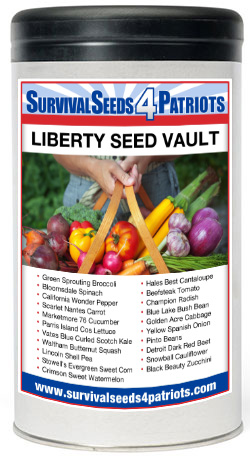4Patriots LLC Provides Tips for Transplanting Plants Outdoors
A gardener can increase the odds of a plant’s survival by taking certain precautions when moving it from indoors to the outdoors once the weather has warmed up. 4Patriots LLC officials have some suggestions.

Nashville, TN , United States – May 3, 2017 /MarketersMedia/ —
In many parts of the country, it takes a while for the air and ground temperatures to become warm enough in the spring to fully support plants. But if a backyard gardener waits to start plants until it’s consistently warm outside, the growing season could be shortened.
That’s why many people start their plants indoors in the late winter and early spring, moving them outdoors during April and May. A recent article in the Denver Post provides advice on making that transition, including using a germinating mix and only organic fertilizers, burying the stems deeper if a plant is drooping outdoors, and dividing some perennials.
“We at 4Patriots LLC also have some suggestions on transplanting your young plants outdoors,” said 4Patriots Partner Allen Baler, whose Nashville, Tenn.-based company provides a variety of products that help people become more self-reliant and independent. (They are listed below.)
“We also offer the Liberty Seed Vault so that people can have their own stockpile of non-GMO vegetable seeds to use for planting, growing, harvesting, replanting and storing for the future.”
The Liberty Seed Vault provides a path to independence and self-sufficiency.
This air-tight, metal storage container includes more than 5,340 heirloom seeds from 22 varieties of vegetables including broccoli, spinach, carrots, squash, corn, tomatoes, onions, beets and zucchini. Each order is accompanied by four guides and a 100 percent money-back guarantee.
“After growing and enjoying these nutritious vegetables, gardeners can use the seeds from the harvest for next year’s crops, so they never have to buy seeds again,” Baler said. “This strategy provides additional benefits because it allows people to be less affected by food shortages and increasing food prices.”
Genetically modified foods are plants or animals that have had genes copied from other plants or animals inserted into their DNA. While farmers have been selectively breeding plants for centuries, this particular genetic manipulation is done in a lab, speeding up the process by transferring a gene from one plant or animal to another. The engineering is done to create certain traits, such as resistance to herbicides.
Here are some of those tips:
Gradually expose plants to sunlight by keeping them in deep shade and slowly moving them into brighter sunlight. Plants moved immediately into direct sunlight can burn and become damaged.
After moving a plant to the garden, use a more natural, root-boosting fertilizer to aid in plant growth. The goal is to avoid transplant shock and devote the first year to promoting healthy root growth.
Stay away from high-nitrogen fertilizers until the plants are fully settled and growing on their own. This will usually occur after about one year or so.
Pay attention to the weather forecast and adjust the plant location when strong winds or hard rain is predicted. Raise soil around the plant to protect it or build a wind barrier to shield the plant.
Gradually increase exposure to cold, as overly cool temperatures can affect the young plant’s survival rate. If temperatures fall below the crop’s minimum forecast, bring the plant indoors or cover it with a blanket.
Understand the hardiness of various fruits and vegetables. Onions are hardy and can take temperatures in the 40’s. Warm-season crops such as eggplants, melons and cucumbers prefer temperatures of at least 60 degrees Fahrenheit.
Plants grow faster outdoors than indoors, so more frequent watering is required. In the heat of summer, it may be necessary to water a couple of times a day, especially when rainfall is low.
Check soil to make sure it has the needed nutrients – phosphorus, nitrogen, potassium, etc. – and pH levels for plant growth. Testing soil also makes a gardener aware of contaminants such as metals.
SurvivalSeeds4Patriots is the premier source for heirloom, non-hybrid, non-GMO seeds people can use in their gardens to grow nutritious vegetables. Containing more than 5,340 heirloom seeds from 22 varieties of vegetables, the Liberty Seed Vault allows people to achieve independence and self-reliance, despite whatever food shortages and price increases might occur.
Contact Info:
Name: Tim Boyle
Email: timm.boyle@4patriots.com
Organization: 4Patriots LLC
Source URL: http://marketersmedia.com/4patriots-llc-provides-tips-for-transplanting-plants-outdoors/192520
For more information, please visit http://www.4patriots.com
Source: MarketersMedia
Release ID: 192520